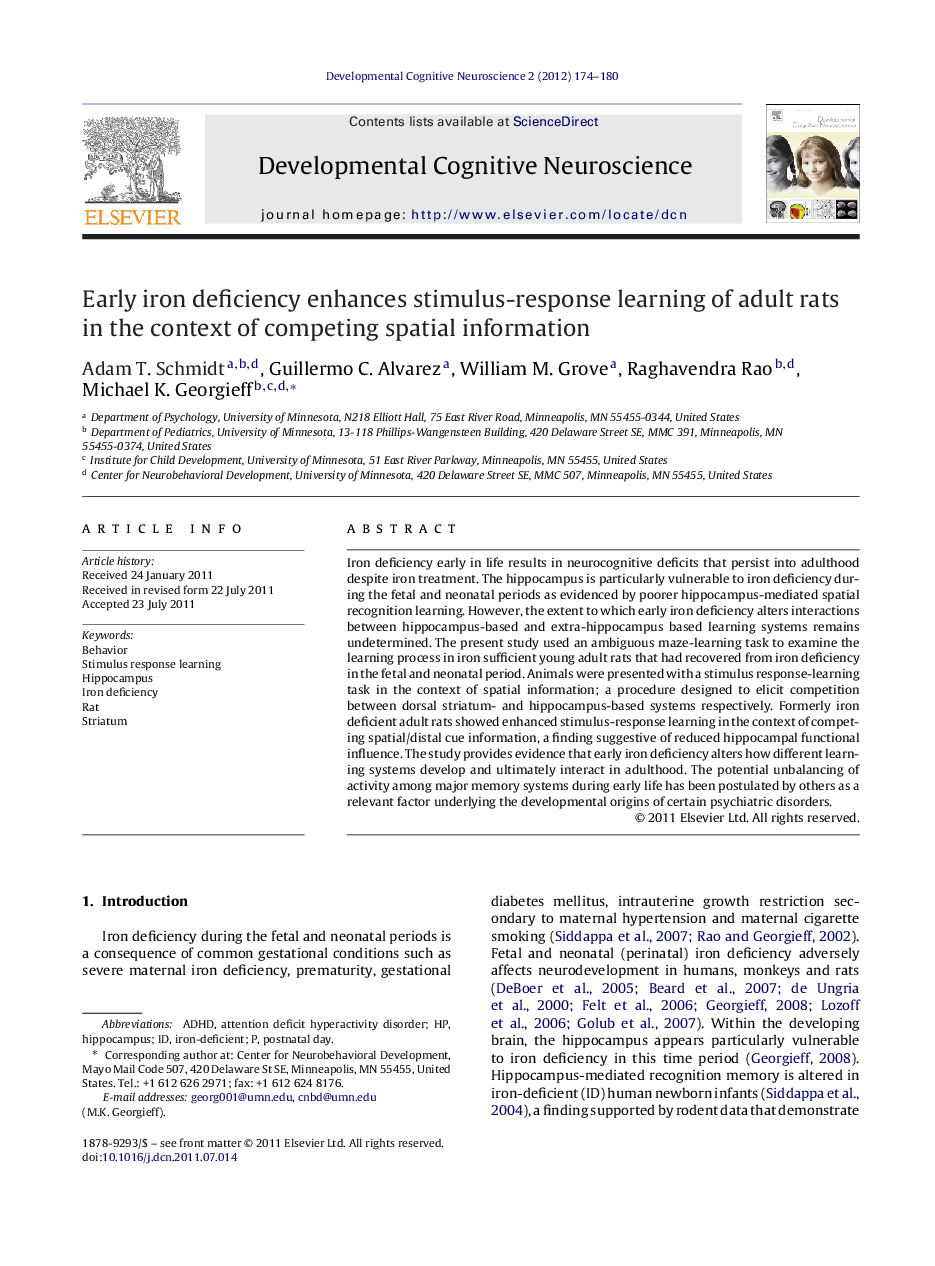| Article ID | Journal | Published Year | Pages | File Type |
|---|---|---|---|---|
| 4316796 | Developmental Cognitive Neuroscience | 2012 | 7 Pages |
Iron deficiency early in life results in neurocognitive deficits that persist into adulthood despite iron treatment. The hippocampus is particularly vulnerable to iron deficiency during the fetal and neonatal periods as evidenced by poorer hippocampus-mediated spatial recognition learning. However, the extent to which early iron deficiency alters interactions between hippocampus-based and extra-hippocampus based learning systems remains undetermined. The present study used an ambiguous maze-learning task to examine the learning process in iron sufficient young adult rats that had recovered from iron deficiency in the fetal and neonatal period. Animals were presented with a stimulus response-learning task in the context of spatial information; a procedure designed to elicit competition between dorsal striatum- and hippocampus-based systems respectively. Formerly iron deficient adult rats showed enhanced stimulus-response learning in the context of competing spatial/distal cue information, a finding suggestive of reduced hippocampal functional influence. The study provides evidence that early iron deficiency alters how different learning systems develop and ultimately interact in adulthood. The potential unbalancing of activity among major memory systems during early life has been postulated by others as a relevant factor underlying the developmental origins of certain psychiatric disorders.
* Gestational iron deficiency reduces newborn brain iron and damages hippocampus. * Early iron deficiency results in long-term hippocampal damage in spite of treatment. * Adult cognitive sequelae of early ID include accentuated stimulus-response learning. * Loss of hippocampal function unbalances memory processing in adulthood.
